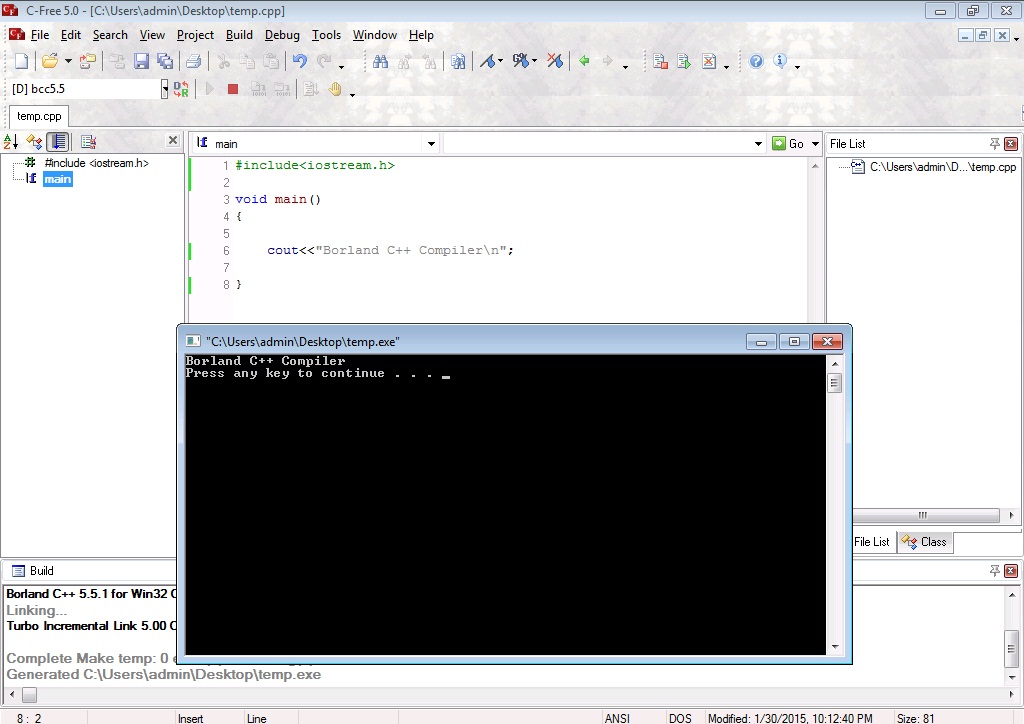

When using a static runtime (and static libraries in general), it is easy toĪccidentally break this rule. One Definition Rule present in the C++ standard. That said, in C++, it is not safe to define more than one copy of the sameįunction or object in a single program.
#C++ EMULATOR FOR MAC ANDROID#
Linker bugs in old versions of Android that make handling multiple shared It also avoids PackageManager and dynamic Inline and prune as much unused code as possible, leading to the most optimizedĪnd smallest application possible. Library, we recommend using the static runtime. If all of your application's native code is contained in a single shared Historical reasons, this is correct for libc++ as well. Note that although the option uses the name "libstdc++" for To use the static variant, add -static-libstdc++ to If you're using clang directly in your own build system, clang++ will useĬ++_shared by default. Ndk-build only allows you to select one runtime for your app, and can only do in To learn more,ĪPP_STL variable in your Application.mk file. You can specify c++_shared, c++static, none, or system using theĪNDROID_STL variable in your module-level adle file.

The other options presented on this page. If you want an STL, you should use one of There is no standard library support aside from the C++ wrappers for the C Options available in the NDK, there is no support for exception handling or The system C++ runtime provides support for the basic C++ Runtime ABI.Įssentially, this library provides new and delete. Note: The system STL will be removed in a future NDK release. Use libc++ for a full-featured C++ standard library. This library should notīe confused with GNU's full-featured libstdc++. The system runtime refers to /system/lib/libstdc++.so. Libc++ is dual-licensed under both the University of Illinois "BSD-Like" If you're building your application with Gradle The shared library for libc++ is libc++_shared.so, and the static Should use APP_CPPFLAGS to add -std=c++17 or whatever they want instead. Ndk-build also leaves the decision to clang by default, so ndk-build users In your CMakeLists.txt file to use C++17 or later features. So you'll need to set the standard CMAKE_CXX_STANDARD to the appropriate value Support in the compiler is orthogonal seeĬMake defaults to whatever version of C++ clang defaults to (currently C++14), (C++20 was previously known as C++2a.) The level of C++ language
#C++ EMULATOR FOR MAC FULL#
Note: For full details of the expected level of C++ library support for any Library that has been used by the Android OS since Lollipop, and as of NDK r18 Warning: Using static runtimes can cause unexpected behavior. Libc++ is available as both a static and shared library.
#C++ EMULATOR FOR MAC HOW TO#
Information about these libraries, the tradeoffs involved, and how to use them. The NDK supports multiple C++ runtime libraries.


 0 kommentar(er)
0 kommentar(er)
